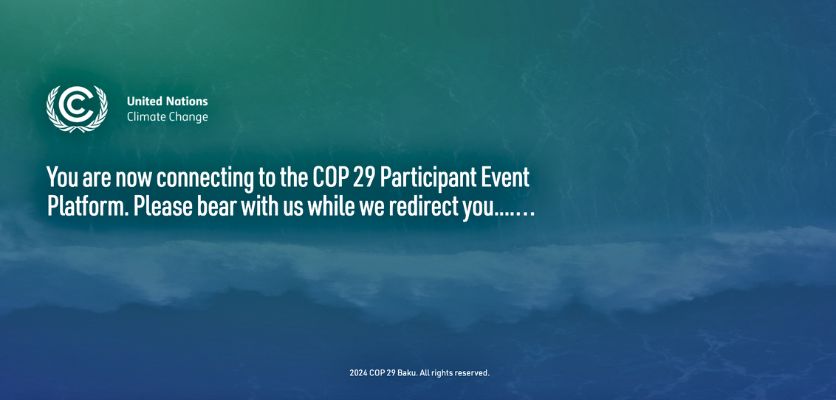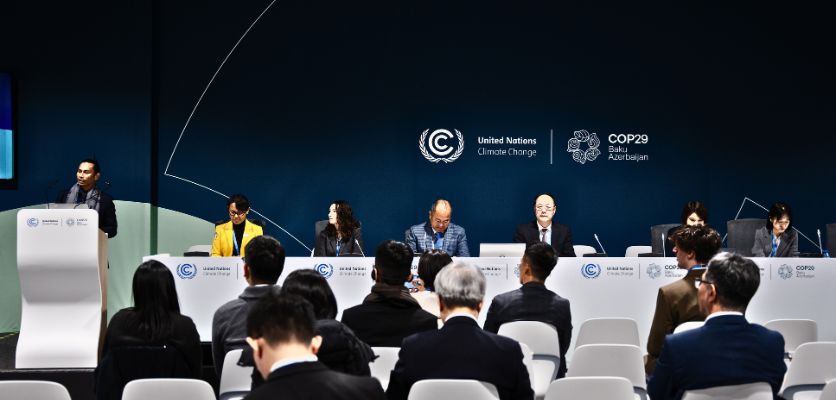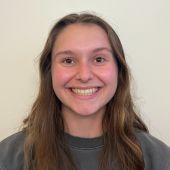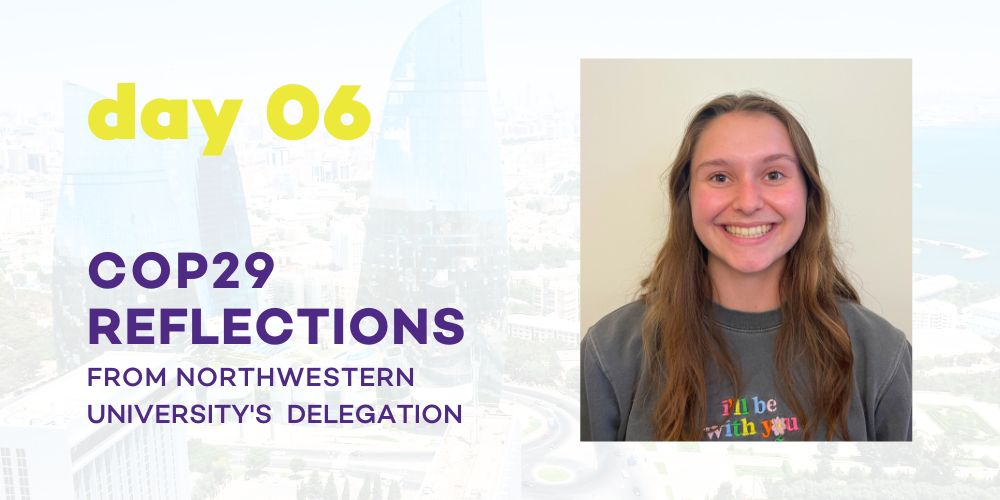Reflections from Northwestern University's COP29 Delegation: Day 6
For a fourth year, a delegation of Northwestern University students and faculty supported by the Buffett Institute is among more than 30,000 researchers, policymakers, industry leaders and activists at the world’s largest annual international treaty negotiations and climate summit, the 29th Conference of Parties (COP29) to the United Nations Framework Convention on Climate Change (UNFCCC), this year hosted in Baku, Azerbaijan. Each day, a different Northwestern delegate is blogging about their experiences and reflections. Day 6 features Olivia Schenker, a fourth-year undergraduate majoring in biological sciences and environmental policy and culture.
On the first morning of COP29, I woke up at 6:30 a.m. and immediately poured myself a cup of coffee to help myself stay awake. I placed my computer and large cup of coffee on my dining room table as I sat down. I opened up my laptop and logged on to the virtual platform, which I found surprisingly easy to use.

It was already 6:45 am. I quickly navigated to the meeting I wanted to join hosted by Palau and the Foundation of Taiwan Industry Service (FTIS), “Harnessing Science and Nature: Innovative Adaptation Strategies for Resilient Futures,” and clicked “Join.” The platform redirected me to Microsoft Teams. Although COP29 is currently taking place in Baku, Azerbaijan, I was sitting at my dining room table in the United States. The video started and showed six panelists sitting at a long table. I watched them, but they could not see me. The camera angle enabled me to see about half of the room, which appeared sparsely populated.

Credit: COP29 Azerbaijan
As soon as the moderator began the press conference, the camera shifted to him, so that all I could see was his face. The moderator, who was from Palau, introduced the panelists who hailed from Palau, the United States and Taiwan. Each panelist discussed initiatives that integrate science and nature-based solutions that are currently implemented in their countries. Each time a new panelist spoke, the camera shifted to only show them on the screen.
None of the panelists displayed name cards, making it difficult for me to remember their names and affiliations. As a first-time ethnographer, I struggled to take notes on the discussion because the panelists spoke so quickly. As I was typing up one of their points, the panelist had already moved onto a new topic that I wanted to take notes on, but I was still trying to finish typing their previous thoughts. In addition, many of the panelists used presentations that I could not see, causing me to miss out on supplementary materials that likely played a vital role in the discussion. Thankfully, the internet connection worked well, so I did not miss anything they said.
After the panelists finished speaking, the moderator opened the floor for questions. When an audience member would ask a question, the camera would shift to them, which gave me more insight into the makeup of the audience. One of the difficulties of conducting ethnography online is that you do not get to experience what it is like to be in the room. This means that you cannot feel or see the atmosphere that the discussions are taking place in, see audience members' reactions to what is being said, nor connect with your fellow audience members to hear about their experiences and perspectives. Thus, I feel like digital ethnography lacks some of the insights you would gain from conducting in-person ethnography. Although the virtual experience has been a little tricky and frustrating, I have still valued my experience attending this COP. I have experienced first-hand what happens at these extremely significant meetings, learned how to conduct digital ethnography and discovered what it is like to work in a large research group.

Olivia Schenker is a fourth-year undergraduate majoring in biological sciences and environmental policy and culture. Her academic interests focus on ecology and sustainability, exploring both from STEM and political science perspectives. Outside of her studies, Olivia serves as the president of Northwestern's Wild Roots Student Farm, leading garden workdays and club events. At COP29, she is following negotiations surrounding biodiversity initiatives.

